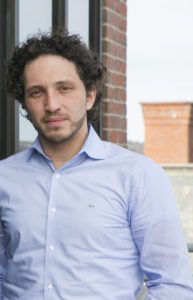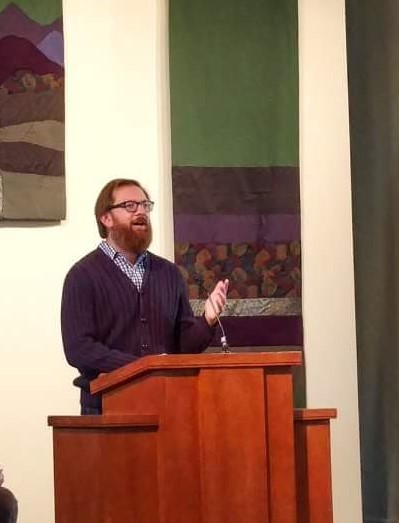2018 ICNC Research Fellows
Ben Naimark-Rowse
 Bio:
Bio:
Ben Naimark-Rowse is a Ph.D. candidate and the Topol Fellow in Nonviolent Resistance at The Fletcher School @ Tufts University where he teaches and researches social movements. He is a Term Member of the Council on Foreign Relations and a Visiting Scholar at SciencesPo. He serves as a Truman National Security Fellow and the Founding Director of the Seevak Human Rights and Social Justice Fellowship. Ben holds a M.P.A. from Princeton’s Woodrow Wilson School and a B.A. with honors from the University of Chicago. Ben’s research and teaching draw on over a decade of experience directing NGOs and advising governments, foundations and academic institutions. He has served as a Program Officer with the Open Society Justice Initiative, an electoral observer with The Carter Center, a Multilateral Affairs Researcher with the Open Society Policy Center, and a board member of the University of Chicago’s Human Rights Program. From 2007-2010, he co-directed Darfurian Voices, the first public opinion survey of refugees from Darfur, Sudan on issues of peace, justice, and reconciliation. His publications include, “Nonviolent Resistance” in the SAGE Encyclopedia of War, “Surviving Success: Nonviolent Rebellion in Sudan” in the Journal of Peacebuilding & Development, and “The Founding Myth of the United States of America” for Political Violence at a Glance. His teaching includes From Gandhi to the Arab Spring: The Theory and Practice of Nonviolent Resistance. His ongoing research projects include, Liberating the “Enemy” in South Africa’s Anti-Apartheid Struggle and Foundation Support for Pro-Democracy Social Movement Building.
Title:
Foundation Support for Pro-Democracy Social Movement Building
Abstract:
Why and how have some institutional donors in the United States supported nonviolent social movement building in non-democracies?
A number of movement-centric research projects seek to explore the effects of donor support for nonviolent social movements on their success or failure. By contrast, this research is donor-centric. It seeks to understand why and how donors decide to support nonviolent social movement building in the first place. This research will explore a range of factors that might influence donor support for social movement building including donors’ internal structures, donors’ perception of political risk, and the nature of donors’ understanding of and relationships to social movements.
In collaboration with the Human Rights Funders Network, this project will utilize the Advancing Human Rights database to outline trends in donor support from 2011-2015. Interviews with and a comparative case study of donors will allow this project to offer a detailed understanding of how donors work. In doing so, this research seeks to offer insights to donors, academics, and movements, amongst others about the availability of financial and other resources for social movement building in closed and closing political spaces.
Brandon Sims
 Bio:
Bio:
Brandon Sims is a PhD candidate in International Relations at American University, School of International Service focusing on International Peace and Conflict Resolution studies. His research focuses on various aspects of civil resistance and peacebuilding, especially in the context of South/Southeast Asia. Brandon’s most recent publication is “Constituting Self-Violent Resistance: Materiality, Embodiment, and Speech Acts” in the Journal of Resistance Studies. His research has been supported by: the United States Institute of Peace as a 2018-2019 Jennings Randolph-Minerva Peace and Security Scholar; a Critical Language Scholarship through the U.S. Department of State; a 2016-2017 Peace and Violence Research Lab Fellowship, American University; and various dissertation support through American University. Before starting the PhD program, Brandon worked for five years in Indonesia with Mennonite Central Committee, an international peace and development organization.
Title:
Variation in Civil Resistance: Repression, Learning, and Brokerage
Abstract:
The research goal is to intervene in a developing conversation in the civil resistance field on why groups may begin and maintain nonviolent tactics (or why groups using violence for a time switch to nonviolent action). Recent political science research tends to focus on structural variables influencing the onset of nonviolent compared to violent campaigns, without investigating tactical change over time. In addition, conventional explanations for variation over time emphasize that severe government repression should lead to increasingly violent tactics. In contrast to existing cross-national structural explanations, which are not amenable to policy interventions, I pursue a contextual, agent-centered explanation that also considers the strategic environment. Specifically, I explore how group learning – from past conflict history, watching other groups, and training in violent or nonviolent methods – interacts with brokerage across social sites to produce violent and nonviolent variation in the context of weak or strong violent government repression.